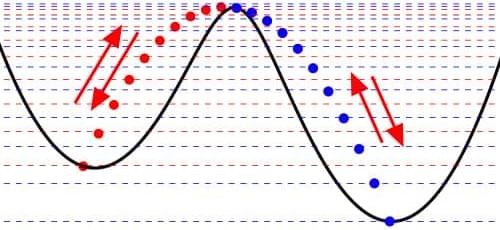Irradiating a uniaxial magnetic system with a specific sequence of microwave pulses can induce in the system quantum oscillations that cause the material’s spins to flip back and forth.
To make higher-density magnetic data systems, researchers are looking to crystalline materials that have switchable magnetic orientations. But for some of these materials, switching the magnetization direction—for example from spin-up to spin-down—requires overcoming a large energy barrier. Now Seiji Miyashita at the University of Tokyo and Bernard Barbara of the Institut Néel, CNRS Grenoble, France, predict that experimentalists could reverse a material’s magnetization by applying to it a specific sequence of microwave or optical-frequency pulses [1]. The approach could find applications in quantum information storage.
To reverse the spin of a magnetic material, researchers can apply high temperatures or high magnetic fields to push the system over the potential energy barrier that separates its spin states. Another option is to induce resonant quantum tunneling to move electrons through the barrier. Miyashita and Barbara propose a further method that bypasses the constraints associated with the application of intense magnetic fields in these previous methods.
